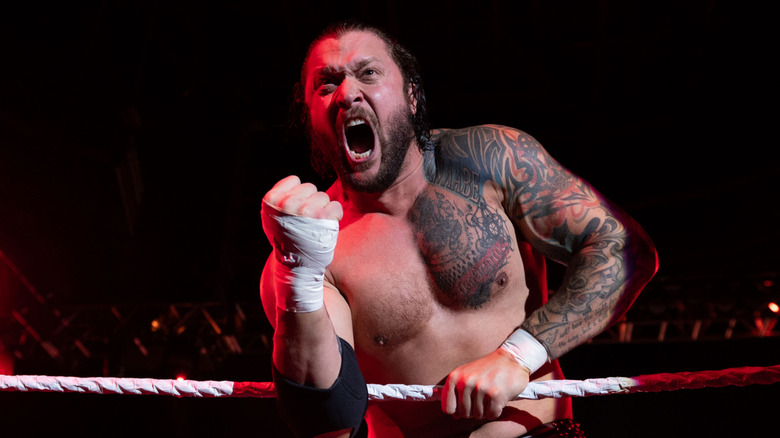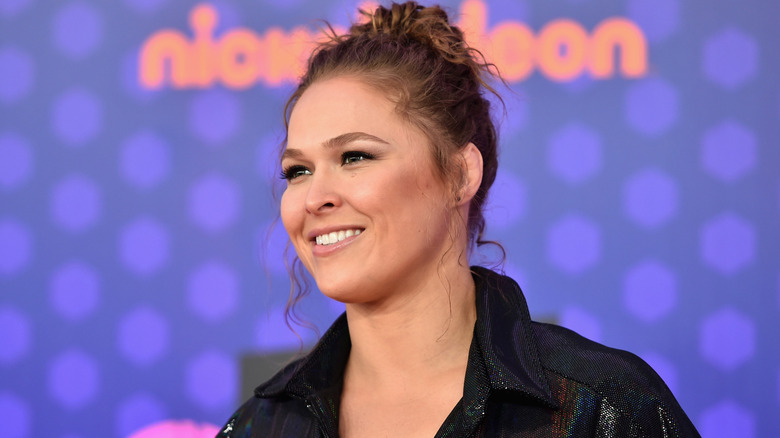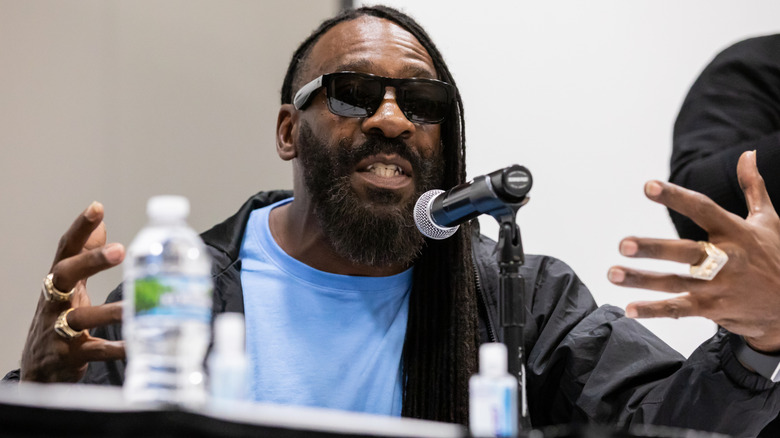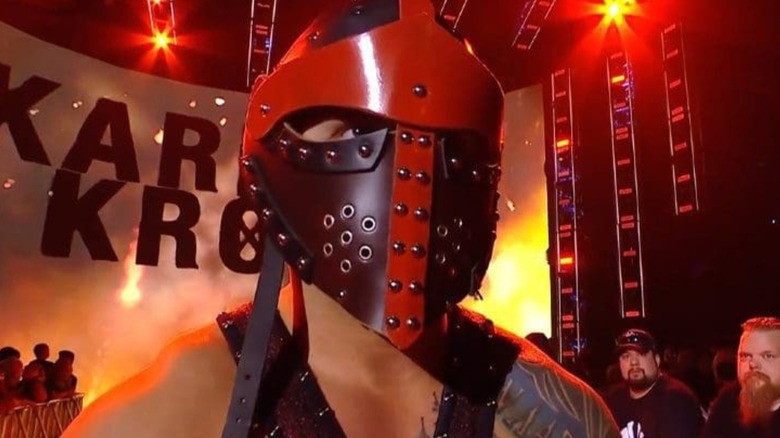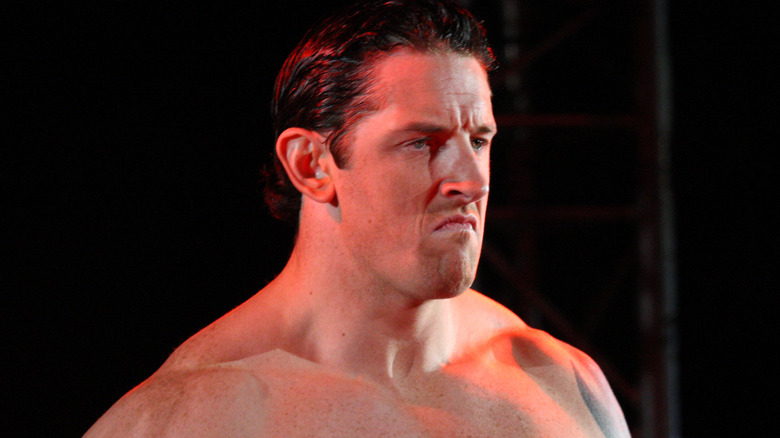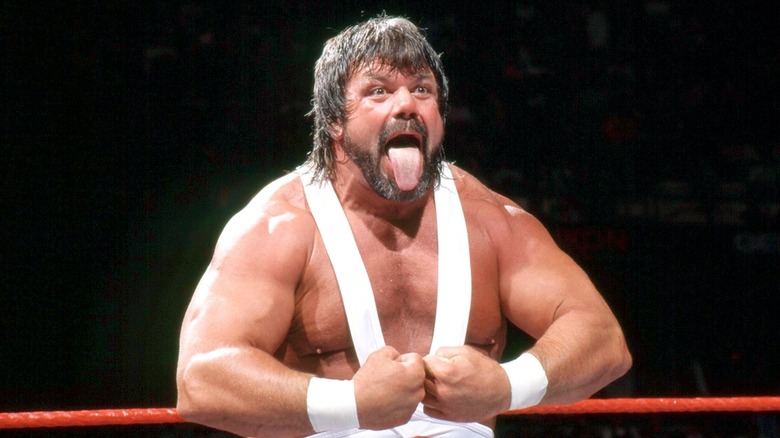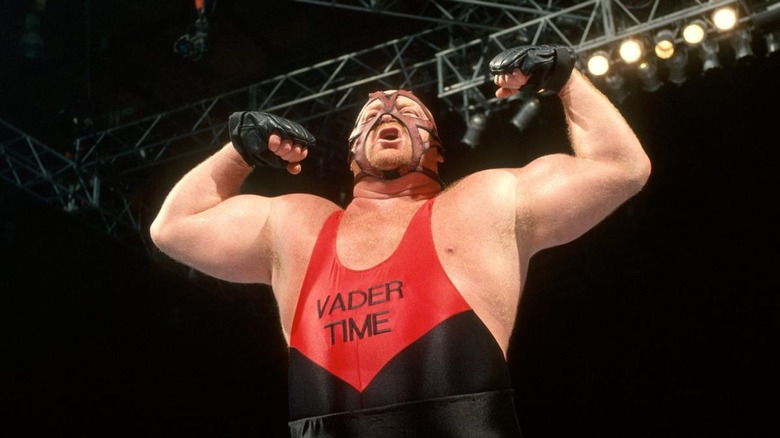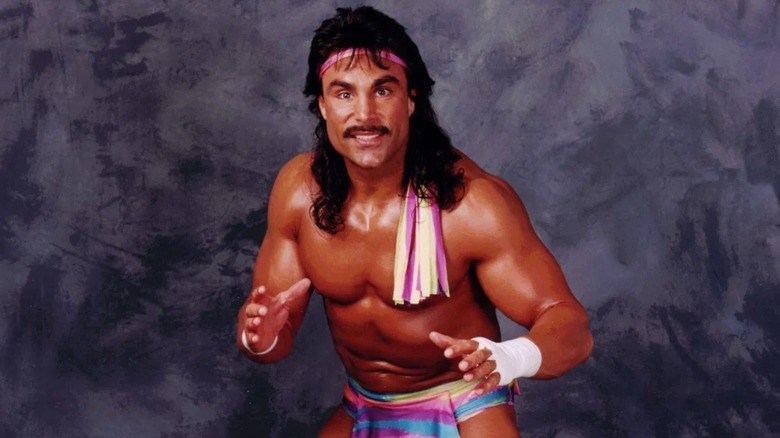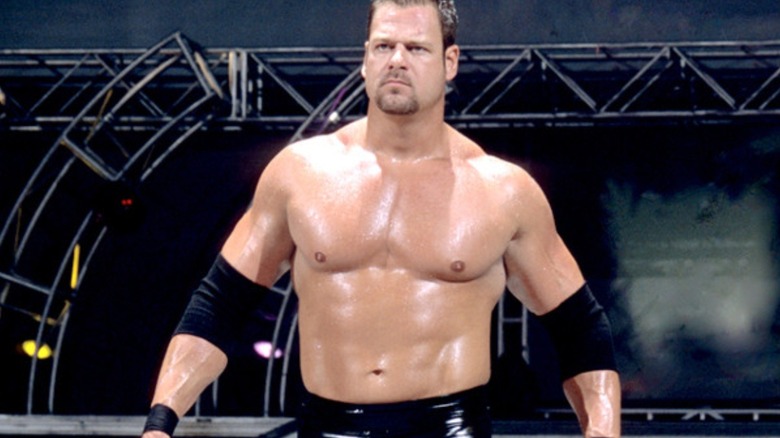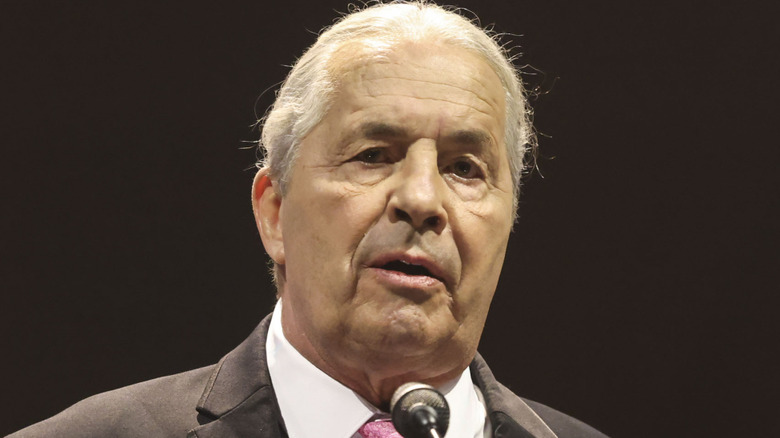WWE Wrestlers Ruined By Bad Calls
The professional wrestling business is one that lives and dies on the strength of its decisions. A good decision can lead to wrestlers transcending the business itself and becoming mainstream pop culture icons, events being heralded as the best of all time, and companies entering periods of critical and financial success that are remembered as golden eras for decades to come. However, for all the good that can come from making good decisions, if a series of bad decisions are made, it can be catastrophic both in the short-term and long-term simultaneously.
A wrestler who has experienced an organic, natural push towards the top of the card can tumble back to the bottom of the pile, an event can go from being an all-time great to an unwatchable chore of a show, and entire promotions can literally go out of business due to dwindling fan interest that leads to financial problems and eventually bankruptcy. But how damaging can a single bad call actually be?
Decisions made by WWE have taken performers, ripped their careers from underneath their feet, and left them to float aimlessly in the void of uncertainty to fend for themselves. For all of the careers that WWE's booking has helped elevate to heights only few wrestlers ever truly reach, the argument can be made that the company ruined careers in the blink of an eye, both by accident and on purpose.
Ronda Rousey
When it was announced in 2018 that former UFC Women's Bantamweight Champion Ronda Rousey was making the jump to WWE, there was a lot of excitement from those in the wrestling business. "The Baddest Woman on the Planet" was the biggest female athlete in the world during her prime years in the world of Mixed Martial Arts, so the thought of her crossing over to WWE had people thinking that it could usher in a new era of popularity based solely off of Rousey's star power. Things started off well in 2018 with her debut at the end of the Royal Rumble pay-per-view, and Rousey's in-ring debut at WrestleMania 34, when she and Kurt Angle defeated Triple H and Stephanie McMahon, was considered by many to be the best match of the show.
The problem with Rousey, and the call that arguably turned people against her very early on was the fact that she was pushed so much by WWE that they completely ignored the fact that she, for the lack of a better term, was green as grass. This, combined with the fact that Becky Lynch became one of the most popular stars in all of wrestling when Rousey was one of the two WWE Women's Champions, making Rousey's sustained push to the top even more egregious.
Things didn't get any better for Rousey when she started calling WWE fans "ungrateful," a statement she would later take back, but the rejection caused by WWE pushing Rousey against the fans' will tanked her popularity, tanked her star power, and even tanked her desire to be in the wrestling business at all. Aside from a cameo in ROH, Rousey claims to be retired, something that might not have happened had WWE got things right.
Booker T
Considering that Booker T has been inducted into the WWE Hall of Fame twice, and is regarded as one of the greatest black wrestlers ever, you might be thinking how any call could have derailed the career of the five-time WCW Champion. However, for as much success as Booker has had, he could have had a lot more at a time when WWE really needed some fresh faces in the main event scene.
In the early days of the Ruthless Aggression era, Booker got over with the fans in a huge way, leading to many considering him as a potential World Heavyweight Champion who could be the face of "WWE Raw." Those people got very excited when Booker was picked to be the man to face Triple H for the title at WrestleMania 19 in 2003, but there was a problem; he got over during the now infamous "reign of terror."
The storyline involving Booker and Triple H was rough to say the least, with "The Game" telling Booker "somebody like you doesn't get to be a World Champion," that he should focus more on entertaining people, and even telling Booker to dance for him. As if people weren't already uncomfortable with the racial tones of the feud, WWE made the decision to have Booker lose at WrestleMania 19 in a way that made him look weaker than most of Triple H's previous opponents combined.
Booker has gone on to say that he actually didn't really mind the loss at WrestleMania 19, but the heights he could have reached had he won the World Heavyweight Championship at that time, a time where WWE needed some new blood at the top of the card, could have made him even more of a legend than how people see him now.
Karrion Kross
A boneheaded decision that is so bad that one could argue that Karrion Kross is still recovering from it nearly four years later.
Back in 2020, Karrion Kross signed with WWE after impressing in companies like Impact Wrestling, AAA, and MLW, and with Scarlett by his side, he became one of the few bright spots of "WWE NXT" during the COVID-19 pandemic, when wrestlers were still trying to get used to performing with no audience. Kross would become an unstoppable killer in "NXT," and despite his first run with the NXT Championship being cut almost immediately due to an injury sustained in the title match, he would have a second run with the title less than a year later. He became only the fifth man in history to hold the NXT Championship twice, and things looked to get even better in the summer when he made an appearance on "WWE Raw."
On the July 19, 2021 episode of "Raw," Kross made his main roster debut against Jeff Hardy, who would beat the NXT Champion in just over 90 seconds. Already, his credibility on the biggest stage was damaged, but it got worse. Kross would drop the NXT Championship to Samoa Joe in August in order to make a full-time move to "Raw," only his entire presentation from "NXT was scrapped in favor of not having Scarlett, dressing like a gladiator, and strictly wrestling in glorified squash matches.
Kross was released in November 2021, as was Scarlett, but was brought back one year later by Triple H. However, Kross has never reached the heights he reached in "NXT," and even his worked-shoot promo after WrestleMania 41 hasn't been able to boost his profile as much as many would have hoped.
Wade Barrett
Much like the situation between Booker T and Triple H, only this was when WWE genuinely needed to make new stars because people were sick of the product. The depths of WWE's PG era are some of the least talked about in company history, while also being one of the most frustrating times for those who remained watching as there were flashes of brilliance every once in a while. The Nexus was one of those flashes.
Following the end of season one of the game show version of "WWE NXT," the rookies from the show formed The Nexus, and had one of the most impactful main roster debuts in WWE history. Yes, Daniel Bryan did get fired for choking Justin Roberts with his tie, but he came back at SummerSlam 2010 and went on to become one of the most beloved figures in WWE, main eventing multiple WrestleMania's along the way. That is what WWE wanted for Wade Barrett, to have the Englishman lead the Nexus to new heights in order for him to be seen as the main star and be catapulted into the main event scene.
As we all know now, the Nexus was beaten at SummerSlam 2010 by John Cena and Team WWE, with Cena made to look like the most indestructible person in history. The call to have Cena go over Barrett led the Englishman to a lifetime in the midcard, as he never even got close to the WWE Championship after that night, and even people on Cena's own team like Edge and Chris Jericho knew it was a bad call. Instead of making seven new stars with one being a future World Champion, WWE butchered seven careers in favor of keeping the champion strong.
Dr. Death Steve Williams
While many of the names we've already mentioned have had some levels of success in WWE despite the dodgy decisions that were made, "Dr. Death" Steve Williams had virtually no success in WWE whatsoever.
Debuting in 1998 after becoming one of the most feared gaijins in All Japan Pro Wrestling, Williams was seen by many people in WWE as someone who could be a monster heel that could dominate the main event scene at a time where WWE was really starting to hit its stride in terms of mainstream exposure. The only problem for Williams was that he arrived at a time where Vince Russo thought putting 16 wrestlers in a shoot-fighting tournament would be best for business.
The "Brawl 4 All" tournament is often regarded as one of the worst things that WWE has ever done, with Williams and his inclusion turning out to be perhaps the worst call that the company had made for sometime. The idea was for Williams, an NCAA Collegiate level wrestler and football player, to win the entire tournament and cement his place as one of the most dangerous men on the roster. Despite defeating Quebecer Pierre (now known as PCO) in the first round, Williams was not only beaten by eventual winner Bart Gunn in the second round, but he would tear his quad and suffer a concussion from being knocked out, causing him to miss months of action.
By mid-1999, the Williams hype train had left the station, and despite having a feud with Steve Austin baked into his contract, injuries and lack of direction caused Williams to leave the company before the end of the year. He did return to AJPW in 2000, but he was far away from the man he was before he joined WWE.
Vader
Like Dr. Death, Big Van Vader was a behemoth in Japan, with his victory over Antonio Inoki in New Japan Pro Wrestling still being seen as one of the most shocking moments in wrestling history. Stateside, Vader battered nearly all of the WCW roster on his way to becoming a three-time WCW World Heavyweight Champion, making him one of the most sought after wrestlers in the business by the mid-1990s.
In 1996, "The Mastodon" signed with WWE and was immediately portrayed as a freak athlete who had the strength of a super heavyweight, and the agility to perform moonsaults better than some cruiserweights. He had Jim Cornette by his side, the fans in awe of him, and all the momentum in the world, which naturally led to him being in line for a shot at the WWE Championship. That shot would come at SummerSlam 1996 against then champion Shawn Michaels, but the problem was that Vader was wrestling the 1996 version of Michaels, the version that was so used to everything being catered to his needs that he would actively sabotage people's careers if people didn't play by his rules.
Vader famously forgot to move out of the way of Michaels during their match, leading to Shawn throwing a tantrum mid-match, and complaining to Vince McMahon backstage after all was said and done. Naturally, Vince took Shawn's side, and Vader was already on borrowed time in WWE because if someone like Michaels didn't like working with you, you had no chance of surviving in WWE. Jim Ross has admitted that Michaels is lucky Vader didn't beat him to a bloody pulp, while Cornette hated Michaels for ruining Vader's run, a run that could have lasted longer had WWE not booked him against the most polarizing man of the 1990s
Marc Mero
Younger fans will likely not appreciate him, but Marc Mero during his prime years was someone who injected a much needed dose of life into whatever show he was on. Wrestling as Johnny B. Badd in WCW, he would build the reputation as a workhorse, winning in the early 1990s, before winning the WCW World Television Championship on three separate occasions in between 1994 and 1996. It was in 1996 when he not only made the jump to WWE to wrestle as Marc Mero, but he was also one of the first wrestlers to earn guaranteed money in WWE.
Fans enjoyed Mero's work as "The Wildman," when he became the WWE Intercontinental Champion in September 1996, but at the time, the most interesting thing about Marc Mero was his wife Sable. Married in 1994 but debuting as an active competitor on the same night as her husband's WWE debut, WrestleMania 12, Sable would naturally attract the attention of fans, and when her husband went down with an injury in early 1997, she became one of the most popular WWE Superstars in the company, leading to Mero returning with a gimmick that would see him get jealous of how much attention she was getting.
This would eventually lead to Sable powerbombing her husband at the 1998 WWE Unforgiven pay-per-view, a call that legitimately killed any credibility Mero had as a viable competitor. So much so that Jim Cornette told the story of how Stone Cold Steve Austin, who was meant to wrestle Mero after Unforgiven, called the match off himself by saying "If he just got powerbombed by a 120lb woman, why would Stone Cold Steve Austin waste any time with him other than whoop his ass in 15 seconds?" Mero left WWE in 1999, and retired in 2006.
Mike Awesome
The only entry on the list where the bad calls can be credited to not one, but two companies. In the same way that Vader and Steve Williams were seen as giants of Japanese wrestling in both NJPW and AJPW, Mike "The Gladiator" Awesome had that same reputation in FMW. His work with the likes of Atsushi Onita, Hayabusa, and, of course, his wrestling soulmate Masato Tanaka would lead him to ECW in the late 1990s on a full-time basis, having made cameo appearances during the mid-1990s. However, by the time Awesome became the ECW World Heavyweight Champion, the company was in financial freefall, and in a business where money talks, Awesome agreed to make the jump to WCW in 2000 for a huge increase in pay.
Two calls were then made regarding Awesome's character in WCW. He loved fat women to the point where he didn't care about anything other than flirting with any woman he deemed large enough, and once the "Fat Chick Thriller" gimmick naturally didn't get off the ground, he was saddled with the gimmick of "That 70s Guy." A far cry from the man who looked like he could legitimately kill someone in ECW and FMW.
Awesome probably thought he had been handed a lifeline when WWE bought WCW in 2001, and when the invasion storyline started to take shape, Awesome was the first WCW star to win a WWE title, the WWE Hardcore Championship. However, that was the height of Awesome's success, and rather than pushing him in the way ECW did (even after ECW joined the invasion), WWE decided to let Awesome fade into obscurity. He would briefly find more success in Japan after leaving WWE in 2002, but WWE not doing anything with Awesome was a big opportunity missed.
Bret Hart
If you've been part of the internet wrestling community for long enough, you know exactly what moment we are going to mention when it comes to what WWE decision ruined Bret Hart's career; it's the Montreal Screwjob. The night where Vince McMahon, Shawn McMahon, Earl Hebner, and various other people depending on who you ask screwed "The Hitman" out of the WWE Championship at Survivor Series 1997 because he didn't want to lose the title before heading to WCW. It's been talked about to death, which is why we wanted to look at the call to screw Bret from a different perspective, and how it inadvertently led to him being forced into retirement.
In a classic case of one flap of a butterfly's wing changing the course of history, had Vince and WWE let "The Hitman" do things his way, which was reportedly beating Shawn at Survivor Series but dropping the WWE Championship to him before the end of the year, Hart would have likely gone to WCW in a much different way. His appearance at WCW Starrcade 1997 was showered with Montreal references, as was his entire WCW run, which sadly led him right to the boot of Bill Goldberg who became the metaphorical straw that broke the camels back and concussed Bret so badly he had to hang up his boots.
That concussion, as well as Bret's career coming to an end and even the long-standing feud between Bret and Goldberg might not have actually happened had Hart's exit from WWE been less dramatic. Things could have gone exactly as they were meant to in the grand scheme of things, but when you talk about wrestlers' careers that were forever changed by a decision or decisions made by WWE, Bret Hart should be the poster child for that discussion.
